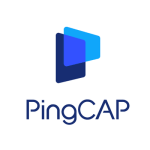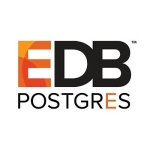What is our primary use case?
The primary use is the leverage DBaaS (Database as a Service) using the Oracle Cloud solution without having to build the database a step at a time. Getting a pre-built Oracle database can be beneficial for testing for functionality, new development, but mostly the ability to quickly build different sizes of Oracle systems without a large effort. The ability to resize things is also an advantage over other cloud solutions. There is also an Autonomous Database.
How has it helped my organization?
I think some of the biggest benefits is if there's a consolidation potential, or putting things up in the cloud where I can consolidate many databases into one. Also a location potential is helpful; if I have customers in Germany and China and in the U.S. but my IT is located in Chicago, I could go to the Oracle Cloud and now maybe I can put replicas using Oracle's multi-tenant database. The cloud makes this a lot easier to actually do a clone of a pluggable database, but I could just take that pluggable database and clone it to China. I can clone it to Germany and then I could have one here in the United States. The data is closer to the person. There's also EU privacy laws that I have to keep and it makes it a lot easier to secure things in one location as well. Careful though, some laws require you to take responsibility for what you put in the cloud. We also benchmarked Oracle ADW vs. AWS Redshift & Oracle was much faster.
What is most valuable?
Being able to go to go to the website: cloud.oracle.com/tryit and get $300+ in free trial credits is a great way to explore the technology (you can also go to cloud.oracle.com/database to just try database as a service (DBaaS). The cloud is something accelerates efforts to interface with Big Data and IOT, but it takes an educated buyer to implement the right pieces at the right time. The cloud gives people the ability to leverage big data from non-Oracle sources including Hadoop and Hive, quickly deploy a development test or simple application, and to leverage the interfaces to other companies and to use mobile apps. I think the downside is it's causing people pain as it compresses how fast they need to learn about it and effectively move the parts of their system that are better suited in the cloud. I think that's the biggest issue right now. Some of the features that are out there for database as a service on the cloud, if you want to have an encrypted backup in the cloud or a test database, it's nice to have a backup that's offsite or a system where you can test new features. Are you going to put your backup in a lock-box at the local bank or are you going to put it on some other cloud? With Oracle, you can send it with RMAN encrypted backup straight to the Oracle Cloud and it's there when you need it. If you had to fail-over for some reason when you use Oracle Cloud, and you have an Exadata in-house, Oracle has an Exadata in the cloud that you could fail right over to (this allows either a CAPEX or OPEX financial event). Maybe you have some big data where you don't have enough servers and you know exactly what you want hardware wise, well, you're familiar with that Exadata performance so you know exactly what you're going to get in the cloud since the hardware is similar to what you have on-site.
What needs improvement?
Features that people want the most are already there. One of them is Oracle In-Memory which allows you to put things in a columnar data store in memory with Oracle's 12c (12.1.0.2+). You could have an in-memory database. You could have columnar data, which is compressed and in-memory (in the in-memory column store) or if you're doing transactional data, it's in the buffer cache (memory) so it's very fast to do that transactions. It's a different memory area altogether. When I look at the cloud, you'll need In-Memory more, because you're going to be dealing with larger volumes of data. The second feature that helps is multi-tenancy; Oracle already has this as of 12c Release 1. It is the ability to clone and move things around and maybe do an exchange partition (PDB - Pluggable Database) with one of your vendors or one of your customers out there (given security needs are met). Non-PDBs (or not using multi-tenancy is being deprecated). Leveraging and testing new features of 12.2 is also beneficial. Oracle 18c will be beneficial with Snapshot Carousel, PDB switchover, In-Memory External Tables and Polymorphic Tables.
I think the way that Oracle and other vendors can move people quicker to the cloud is by educating people on the capabilities of the cloud and some of the benefits of the cloud. I think as customers and vendors out there and partners of Oracle look at providing solutions for the cloud, I think people will be more likely to go there, but what I think right now is the biggest hesitancy is there are a lot of other cloud providers don't have any of the features Oracle has. Oracle must let people know that if you have on-site Exadata, now you can have Exadata in the cloud. Easy to move. You've got a lot of data you want to archive? You can move it to a slower, larger server or a faster, smaller server depending on what you want to do. Just the capabilities that they have in-house or in the cloud. Some cost more than others, so effective planning is one big key to success. The cloud is gaining momentum, but the key to success is evaluating it fully and using appropriately.
For how long have I used the solution?
Three to five years.
What do I think about the stability of the solution?
What do I think about the scalability of the solution?
I did an estimate of all the servers that are out there and Google is obviously very large. Amazon Web Services is very large but if you take Oracle's cloud, which is over 1 exabyte now and then you take the compression that you can do with Oracle, it's actually, probably the largest cloud that's out there right now (many Exabytes). From a scalability standpoint, as big as the world is, as big as you can think, that's how large you can scale your applications.
How are customer service and technical support?
Oracle's technical support has almost every answer just by searching their support system. I always find what I'm looking for and more.
Which solution did I use previously and why did I switch?
I think everybody knows that they need to move from on-premise to the cloud. They know the cloud is what's coming next. They know it's way to quickly interface with social media with Big Data very quickly. I think their hesitancy is: where does it fit? Give us the opportunity to do a hybrid cloud so that our staff can be up to date on exactly how this works and I think then they'll move there faster. There are other clouds with MANY hidden costs. Please hire an expert to consult when evaluating hidden costs on the cloud. Viscosity North America pays particular attention to these hidden costs. Viscosity also has an Oracle vs. AWS whitepaper on our website.
How was the initial setup?
I thought it was very easy to setup database as a service (within hours - the second one will take minutes) for testing new features and familiarizing yourself with the flow of things.
What about the implementation team?
We brought a customer that was not in the cloud, all on premise and we put their EBS finances into the Oracle cloud and all their manufacturing was still on site. They were multi-currency. They were multi-country. Initially there was a lot of education that needed to happen. The more education you put forth at the beginning edge of that project, the more likely you're going to be successful in the middle of that project, but cloud projects tend to be shorter in duration and then when you get to the end of that, there's a lot of questions on things that people could do that they couldn't do before they got to the cloud. The 'what ifs' we'll say. What if I could extend my data to all these data sources with big data? Well, they never asked that before because they never could do it before. Now that they're in the cloud, their whole world opens up to what the capabilities are for their company itself. Some of those discussions are interesting after the fact.
What was our ROI?
It really depends how this is measured.
What's my experience with pricing, setup cost, and licensing?
There are different prices for different architectures - plan wisely and ensure that you look at all the pluses/minuses of each provider!
Which other solutions did I evaluate?
Some of the criteria for when you're evaluating a cloud, to me, number one is cost, but after that it's SLA (Service Level Agreement - from the cloud provider). Is my data going to be there? Consider a credit card company. They have seven seconds until they're paying some other company because they didn't do the transaction fast enough. Usually it takes them one second to approve your transaction so time and speed is probably the most important thing.
What are some of the criteria people should be looking at? First of all is SLA. Will it be up? The second isL is it going to be on hardware and software that I'm used to? I have a tech staff of 100 people, are they going to be able to do their job when that data's in the cloud? Just being familiar with things. Can it scale? Is it large enough?
What other advice do I have?
Read my 12cR2 book on Amazon: https://www.amazon.com/Oracle-...
How would Oracle rate on a scale of 1 to 10 with cloud solution? I think it depends absolutely on which Oracle cloud solution it is. Some are 10 and some are lower. It depends which architecture you evaluate.
Many people are looking at it now. The main key is get educated. Understand what's out there. I did three sessions at Oracle OpenWorld and Java World in 2017, all of them have cloud. I will do many at Collaborate earlier this year (April 2018) and all of them will have cloud. Why? Because I know it's important and where many things are going to some degree. Whether people are using the 12c database, 18c database, that's one of my talks, I know it's important to be ready for the cloud (the 11g database is also available on the cloud). How you would migrate each database and what multi-tenant does to assist you in that process is an important feature of Oracle. I also have regular sessions on the Internet of Things (IOT) which talks about all these devices that are going to be integrated with your database and big data and obviously cloud plays perfectly to that one.
Disclosure: PeerSpot contacted the reviewer to collect the review and to validate authenticity. The reviewer was referred by the vendor, but the review is not subject to editing or approval by the vendor. The reviewer's company has a business relationship with this vendor other than being a customer: We're platinum partners.













An advantage the Oracle cloud provides over other clouds when using Oracle databases is that they include transparent data encryption free by default for all versions of the database and you do not need to license it separately. By default a cloud database uses encryption. That in effect makes your Oracle DBaaS cloud database more secure that your run of the mill Oracle database. So definitely Oracle is doing everything it can to enforce higher levels of database security in the cloud than on premise.